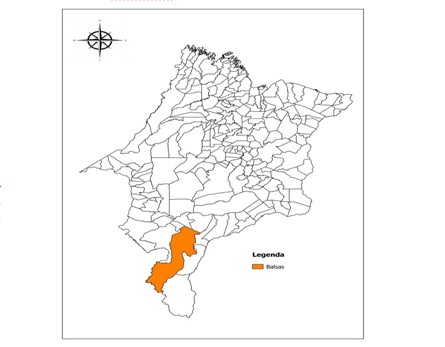Characterizing the subsistance poultry breeding around a poultry matrix farm in Balsas county, Maranhão state, Brazil
DOI:
https://doi.org/10.21708/avb.2019.13.3.8396Abstract
The aim of the present study is to feature subsistence poultry breeding around a poultry matrix farm located in Balsas County – MA, based on aspects associated with infrastructure, management, nutrition and sanitation. The research followed a cross-sectional design through situation diagnostics, based on the quali-quantitative methodology. The study counted on structured and non-structured interviews, as well as on direct observations. In total, 40 subsistence poultry breeders concentrated in a 10-km area around the poultry matrix farm were interviewed for the research. Based on the results, the hen houses were rustic, the birds were allowed to walk free throughout the properties and had straight contact with birds from neighbor breeders, as well as with wild birds and domestic animals. Water quality control was not observed, the water was provided by a well in 95% of the cases (n=38) and was stored in old tires or in plastic containers. It was also possible observing the use of fertilizer containers as feeders and water fountains for the poultry. In conclusion, the management system implemented in subsistence poultry breeding farms can lead to health issues, including the introduction of exotic diseases in these farms and in the poultry matrix farm. It is recommended to take actions to encourage small breeders in the area through public policies, mainly through policies focused on technical assistance, zootechnical guidance and education in sanitation procedures, in order to turn these subsistence activities into a new source of income to producer families.
Downloads

Downloads
Pubblicato
Fascicolo
Sezione
Licenza
Autores que publicam na Acta Veterinaria Brasilica concordam com os seguintes termos: a) Autores mantém os direitos autorais e concedem à revista o direito de primeira publicação, com o trabalho simultaneamente licenciado sob a Licença Creative Commons Attribution que permite o compartilhamento do trabalho com reconhecimento da autoria e publicação inicial nesta revista. b) Autores têm autorização para assumir contratos adicionais separadamente, para distribuição não-exclusiva da versão do trabalho publicada nesta revista (ex.: publicar em repositório institucional ou como capítulo de livro), com reconhecimento de autoria e publicação inicial nesta revista. c) Autores têm permissão e são estimulados a publicar e distribuir seu trabalho online (ex.: em repositórios institucionais ou na sua página pessoal) a qualquer ponto antes ou durante o processo editorial, já que isso pode gerar alterações produtivas, bem como aumentar o impacto e a citação do trabalho publicado (Veja O Efeito do Acesso Livre).


 Esta obra está licenciada com uma Licença
Esta obra está licenciada com uma Licença 